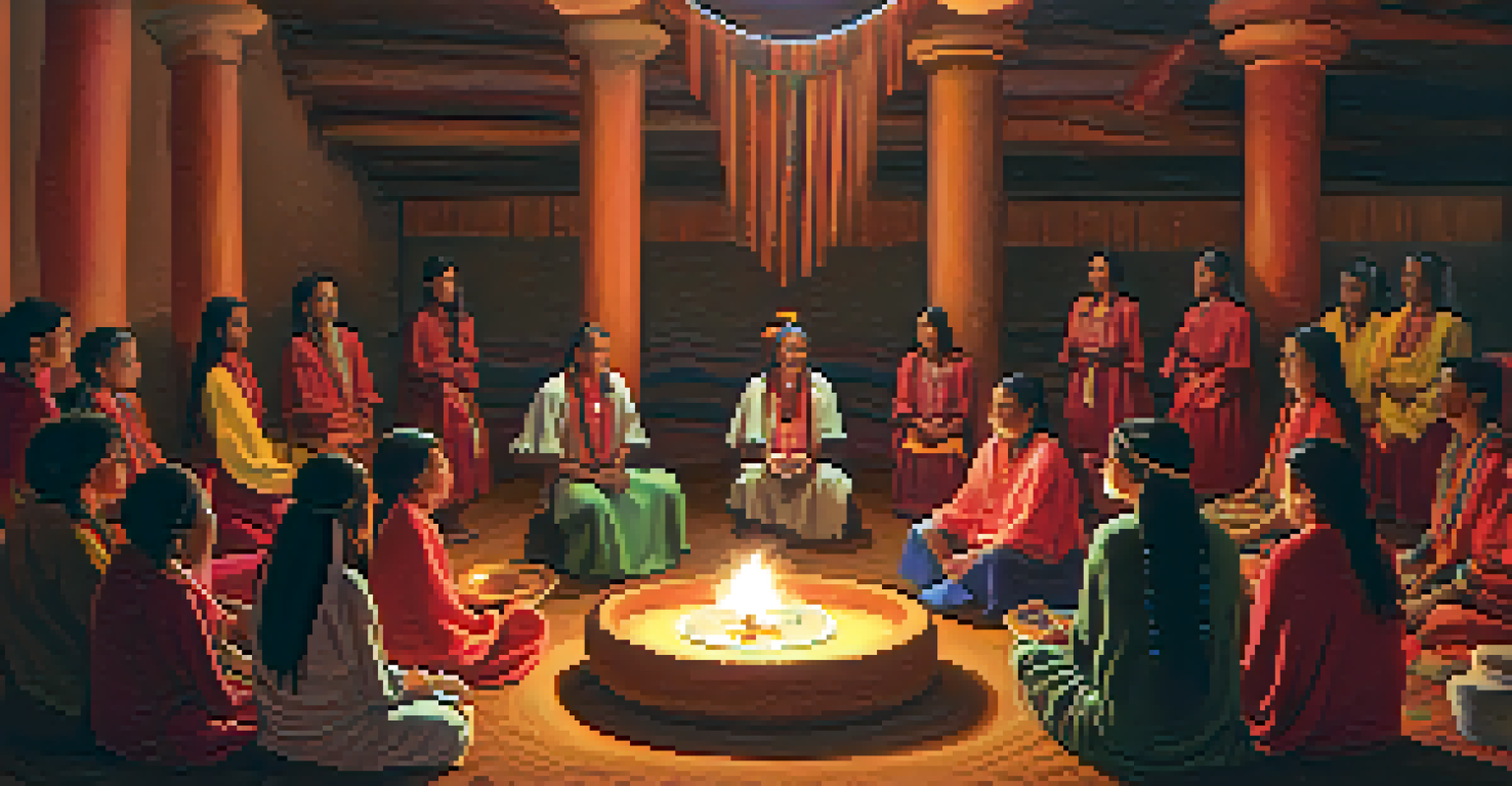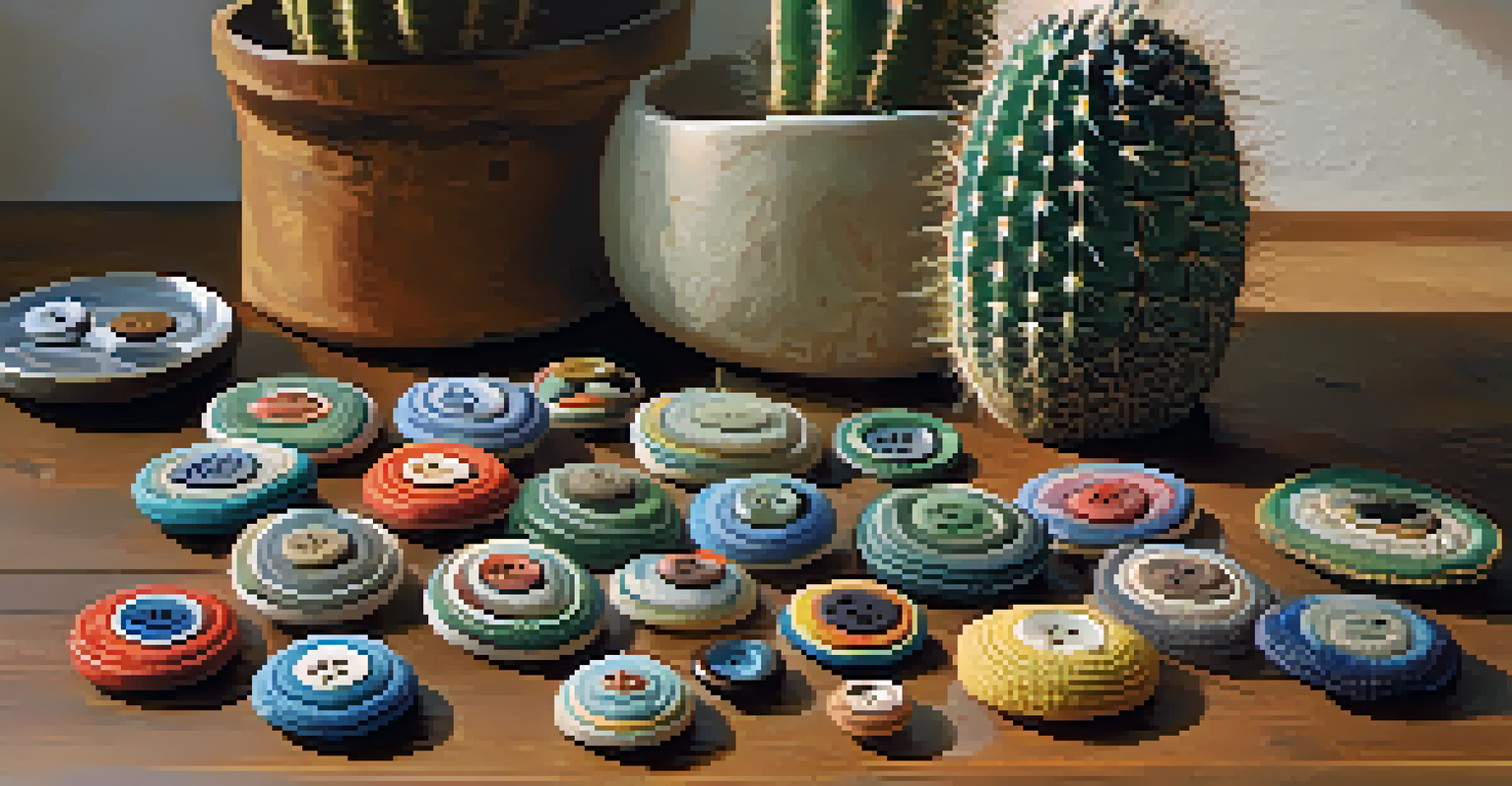Cultural Perspectives on Peyote and Transformation

Introduction to Peyote and Its Cultural Significance
Peyote, a small cactus native to Mexico and the southern United States, has been used for thousands of years in various cultural and spiritual practices. Indigenous peoples, particularly in North America, revere peyote for its psychoactive properties, which are believed to facilitate profound spiritual experiences. This sacred cactus is not just a plant; it's a symbol of connection to the divine and the natural world.
Psychedelics can help us confront the pain we carry and lead us to the healing we seek.
Throughout history, peyote has played a critical role in ceremonies and rituals, often used to promote healing, guidance, and community bonding. For many tribes, including the Huichol and the Native American Church, peyote is a key element of their identity and spiritual expression. Understanding its cultural significance is essential to appreciating its transformative effects on individuals and communities alike.
As we delve deeper into this topic, we'll explore the multifaceted roles that peyote plays in cultural practices and how it contributes to personal transformation, offering insights into the intricate relationships between plants, spirituality, and identity.
Historical Context of Peyote Use in Indigenous Cultures
The history of peyote use dates back to at least 5,000 years ago, with evidence of its consumption found in archaeological sites across Mexico. Indigenous peoples have long recognized its potential for spiritual and physical healing, incorporating it into their rituals and everyday lives. This deep-rooted connection showcases the importance of peyote beyond mere consumption; it is a cornerstone of cultural heritage.

In the early 20th century, the formation of the Native American Church marked a significant evolution in peyote practice, merging traditional beliefs with elements of Christianity. This adaptation highlights the resilience and adaptability of indigenous cultures, as they navigate the complexities of modernity while maintaining their spiritual practices. Peyote ceremonies often foster a sense of community, providing a safe space for shared experiences and healing.
Peyote's Cultural Importance
Peyote holds deep cultural and spiritual significance for indigenous peoples, serving as a symbol of connection to the divine and a cornerstone of their identity.
Understanding the historical context of peyote use helps illuminate its significance in contemporary indigenous identity, serving as a powerful reminder of the enduring connection between culture, spirituality, and nature.
The Transformative Power of Peyote Experiences
Many individuals who partake in peyote ceremonies describe their experiences as profoundly transformative. These journeys often involve intense introspection, leading to greater self-awareness and emotional healing. Participants frequently report feelings of unity with nature and a deeper understanding of their place in the world, which can catalyze significant life changes.
The cactus knows the secrets of the universe, and through it, we can find our place within it.
During a peyote ceremony, participants may encounter visions or insights that challenge their perceptions and beliefs. This process can lead to a sense of catharsis, allowing individuals to confront personal struggles and traumas. The transformative power of these experiences fosters a renewed sense of purpose and direction, often resulting in improved mental and emotional well-being.
As we consider the impact of these transformations, it becomes evident that peyote serves as more than just a psychoactive substance; it is a catalyst for personal growth and spiritual awakening, deeply intertwined with the cultural practices that honor it.
Peyote and Healing: A Spiritual Approach
Peyote is widely regarded as a powerful healing tool within various indigenous cultures. The ceremonies surrounding its use often involve prayers, songs, and rituals designed to create a sacred space conducive to healing. Participants believe that peyote can help them connect with spiritual forces, offering guidance and support in their healing journeys.
Many individuals seek out peyote experiences as a means of addressing emotional and psychological challenges, such as depression, grief, or addiction. The introspective nature of peyote journeys allows individuals to confront their pain and find clarity, often leading to profound insights about their lives. This spiritual approach to healing emphasizes the interconnectedness of body, mind, and spirit.
Transformative Healing Experiences
Participants of peyote ceremonies often report profound personal transformations, including healing from trauma and a renewed sense of purpose.
As we explore the healing aspects of peyote, it becomes clear that its use transcends the physical realm, offering a holistic perspective on health and well-being that many find invaluable in their lives.
Contemporary Issues Surrounding Peyote Use
In recent years, the use of peyote has sparked discussions about cultural appropriation and the commodification of indigenous practices. As the interest in psychedelics grows, there is concern that the sacred nature of peyote ceremonies may be undermined by non-indigenous individuals seeking recreational experiences. This raises ethical questions about who has the right to use peyote and how it should be respected.
Additionally, the sustainability of peyote populations is becoming a pressing issue, as overharvesting threatens its availability for future generations. Indigenous communities emphasize the importance of responsible stewardship and the need to protect this sacred plant from exploitation. Balancing cultural preservation with modern interests is essential for ensuring that peyote continues to be honored within its traditional contexts.
These contemporary issues highlight the need for thoughtful dialogue and respect for indigenous perspectives, ensuring that peyote remains a sacred element of cultural identity rather than a mere commodity.
Personal Narratives: Transformations Through Peyote
Personal stories of transformation through peyote experiences offer powerful insights into its impact on individuals. Many recount journeys that led to profound shifts in their perspectives, relationships, and overall life direction. These narratives often highlight themes of healing, self-discovery, and a renewed sense of purpose, demonstrating the transformative power of peyote.
For example, a participant might describe how a peyote ceremony helped them confront past traumas, leading to a newfound sense of peace and acceptance. Others may share stories of reconnection with their cultural roots, finding strength and identity through the shared experience of peyote ceremonies. These personal narratives serve to humanize and contextualize the broader cultural significance of peyote.
Contemporary Challenges for Peyote
The growing interest in peyote raises concerns about cultural appropriation and sustainability, highlighting the need for respectful engagement with its traditional practices.
By exploring these individual stories, we gain a deeper understanding of how peyote functions as a catalyst for change, bridging the gap between personal and cultural transformation.
The Future of Peyote in Cultural Practices
As we look to the future, the role of peyote in cultural practices remains a topic of discussion and evolution. Indigenous communities are actively working to ensure that their traditional practices are respected and preserved, while also navigating modern challenges. This ongoing effort highlights the resilience of these cultures and their commitment to maintaining their spiritual heritage.
Education and awareness surrounding the cultural significance of peyote are crucial for fostering respect and understanding among non-indigenous individuals. By sharing knowledge and experiences, indigenous communities can promote a more nuanced appreciation of peyote's role in their lives. This exchange can help bridge cultural divides and encourage responsible engagement with peyote practices.

Ultimately, the future of peyote depends on a collective commitment to honoring its sacred nature, ensuring that it continues to serve as a source of transformation, healing, and cultural identity for generations to come.